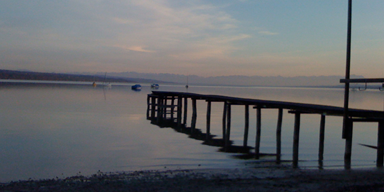DFGE– the Institute for Energy, Ecology and Economy – will release a press release each month until the end of 2016 to ask simple questions that can help audit company’s gaps in sustainability programs and how to quickly bridge them.
Greifenberg/München, 6th Junr 2016 – DFGE – Institute for Energy, Ecology and Economy – was founded in 1999 as a spin-off of the Technical University of Munich and offers complete consulting, software and audit solutions in the field of sustainability. DFGE partners with internationally-recognized reporting frameworks to better support companies in their sustainability management and reporting. DFGE will publish a series of monthly news with a checklist of questions on sustainability programs. The first of this series is about the general strategy setting, while the seven other ones will focus on each of the domain of the CSR standard ISO 26 000-2010 .
1 – Is the management engaged?
To make sure that a sustainability program will work, it is paramount to make sure that the topic is understood by the organization’s leaders and part of their responsibilities, and that money is allocated to such topic. Companies can ask themselves these questions:
2 – Are employees involved?
Engaging the management is obviously key to make decisions. To move CSR forward, and to make it part and parcel of the company’s DNA, employees must be involved. Companies can easily check that employees are taking part in the CSR strategy implementation by answering these questions:
3 – Are stakeholders consulted?
CSR is generally defined as how organizations manage their impacts towards stakeholders. Stakeholders are any party affected by the company’s decisions and actions such as shareholders, clients, suppliers, employees, communities, civil society, among others. To benefit from a successful CSR strategy, companies need to identify the related impacts towards stakeholders, to manage such impacts, and to consult them to see if the actions are matching their expectations. The following questions show if stakeholders were consulted:
4 – Is the sustainability strategy intertwined with the overall strategy?
When setting a sustainability strategy, companies need to make sure that the strategy makes sense for them and is incorporated into the overall strategy and goals of the company. The following questions should help to identify if this goal has been reached.
5 – Is a mechanism review implemented to measure the efficiency of the strategy?
To make sure that the strategy is efficient, it is important to set quantitative goals, and then to measure them through dedicated KPIs (key performance indicators). Then, KPIs need to be reviewed to assess to which extent such targets were reached. An analysis needs to be carried out to find out the causes of non-completion and to reset new targets accordingly. Companies can browse through this checklist:
6 – Does the company communicate about the CSR program?
Once all relevant and dedicated persons are engaged and consulted, and once the strategy is set and measured, it is important to report on the strategy and on its successes. Indeed, such communication let the stakeholders know of such progresses, and leads the company to benefit from CSR opportunities. Companies should review the following questions:
Once companies answered this general questions on the sustainability program, they will be able to tackle specific themes of their CSR strategy, e.g. environment, human rights, labor practices, community involvement, governance, fair operating practices and consumer issues.
DFGE will issue more news with another operational checklist on each of these topics over the next months.
About DFGE
DFGE – institute for energy, ecology and economy – was founded in 1999 as spin-off of the Technical University of Munich and offers complete consulting, software and audit solutions in the field of CSR. Our offer SustainabilityIntelligence features management and reporting solutions related to CSR and sustainability topics (among them being greenhouse gas emissions), and refers to international norms in this field. Our clients comprise international companies (DAX and fortune 500), SMEs, governmental organizations or territorial authorities. For more information, contact us: or visit our website www.dfge.de
The DFGE disclaims all warranties as to the accuracy or completeness of the given information. All opinions and estimates included in this report constitute DFGE’s judgment as of the date of this report and are subject to change without notice. DFGE shall have no liability for errors, omissions, or inadequacies in the information contained herein or for interpretations thereof.
Contact us for more information
DFGE – Institut für Energie, Ökologie und Ökonomie
Kreitstr. 5
86926 Greifenberg
Telefon +49.8192.99733-20










